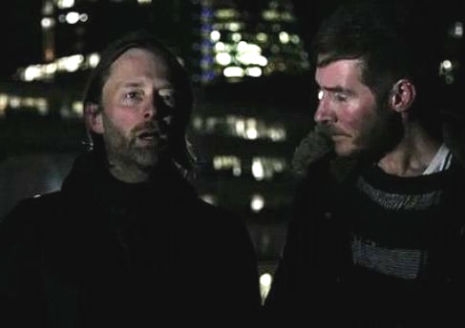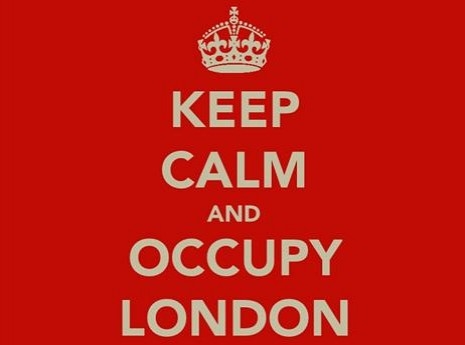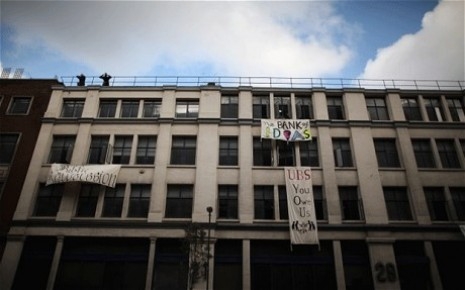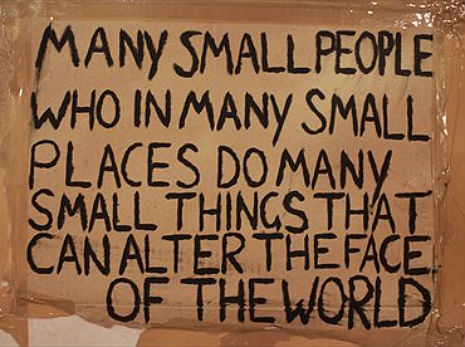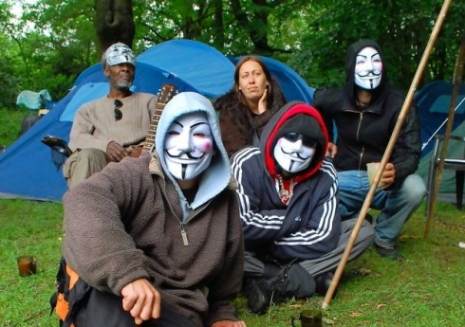
The headlines are in and the buzz is beginning to build. Occupy London (formerly known as Occupy London Stock Exchange, or Occupy LSX) have set up a new protest camp in London’s Hampstead Heath, one of the city’s busiest public parks.
Hampstead Heath is popular with families, tourists, sun seekers and dog-walkers, but the park also happens to be a renowned cruising spot popular with the local gay community, a fact which has not gone unnoticed by the new Occupy camp.
It appears that tensions between the two communities are on the rise - or are they?
A recent news item posted by the gay-interest site Pink News suggests that they may be, quoting from a protester at the Hampsted Heath camp:
Timothy Sullivan, a 46-year-old protester, responded to potential objections to the group’s presence by saying they would improve safety by deterring gay cruising on the Heath.
He told the paper: “We could vaporise that problem just being here and let people enjoy their open space again.”
As would be imagined, these comments have not gone down well with many in the gay community. Or with other communities, for that matter, as a lot of commentators see this story as proof of the Occupy movement’s ill-founded logic, and the stereotype of protesters as “unwashed” (seeing as they will be camping out in a public park for months on end.)
But is there more to this than the initial reports suggest?
As with anything this neatly packaged, the motives of the site doing the reporting should be examined. While gay people should be very vigilant against perceived homophobia, the cynic in me wonders if this is yet another non-story that has been blown out of all proportion and designed to inspire “victim-rage” in a minority, thus drawing more advertising hits?
Because it seems awfully silly of a movement who claim to represent 99% of the world’s population to make comments that single out, and make targets of, a specific minority (a minority who, lest we forget, are already facing their own tribulations.) The Occupy movement itself has been somewhat of a whipping boy in certain corners of the internet and the oldstream media, who seem intent on discrediting the movement, something that has been made much easier by Occupy’s nebulous nature.
However, Ronan McNern, a gay member of the Occupy London press team, has said today:
“{These comments] are not representative of Occupy London, and against our own Safer Spaces Policy, which is very clear:
“Racism, as well as ageism, homophobia, sexism, transphobia, ableism or prejudice based on ethnicity, nationality, class, gender, gender presentation, language ability, asylum status or religious affiliation is unacceptable and will be challenged.” [http://occupylondon.org.uk/about/safer-space-policy)
Occupy is made up of individuals and these are the comments of an individual - comments that run contrary to positions decided by Occupy in its very earliest days and remain at the core of how we relate to and show respect for one another. I will be speaking with him personally (have left a voicemail with him), as I know will others. Having met and chatted with him briefly I thought he was a good guy and I was very surprised to hear these comments. There is the potential that the words reported weren’t exactly what he meant to say, but whatever the case he will be spoken with so that he gains a clearer understanding of the history of Hampstead Heath, the fight for gay/queer rights and the stigma that has had to be overcome, and that still continues.
I’ve heard that other members of the Occupy Nomad camp have already expressed serious concerns regarding these comments. As a movement, it is essential that we challenge the language and assumptions that appear to have been made in the comments that appeared in the article - while Occupy is open to all, it is not open to all behaviours."
Sure, there may be many reasons to disagree with the methods of the Occupy movement (if not the motives, per se) and the confusion surrounding the reporting of this issue ties in strongly with that, but with summer rolling back 'round and people getting ready to get protesting again, it will serve us well to keep our media-cynicism levels at an all-time high. Because I think we are going to see a lot more of this kind of thing.
Occupy London have an official statement addressing the comments made by Timothy Sullivan on their website..
With thanks to Paul Shetler.






